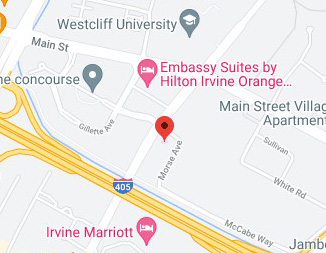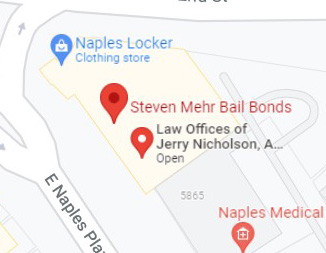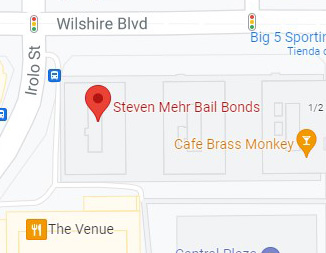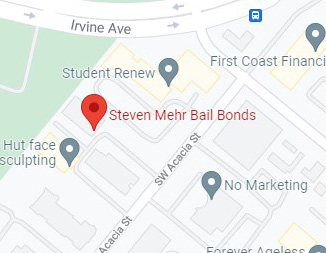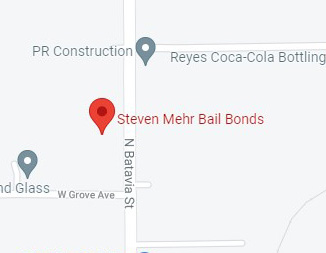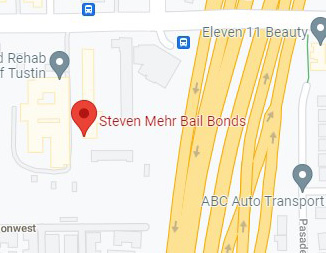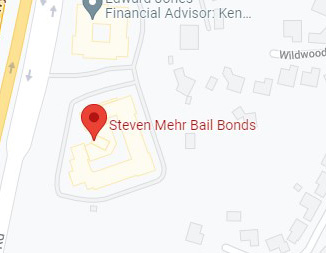California law provides different avenues for police officers to follow after arresting a suspect. First, they’ll take you to the nearest detention facility (police station, jail, or sheriff’s office) and collect particular information from you. Afterward, you’ll have the opportunity to leave the detention facility by posting a certain bail amount.
The law allows you to post bail for most criminal offenses, but it may not come cheap. Consequently, you may need the help of a bail bonds company. Most people regain their freedom within 24 hours of arrest, particularly when they’ve worked with a trustworthy bail agent.
At Steven Mehr Bail Bonds, we are on standby to help you regain your freedom after an arrest. Our bail agents are devoted to helping clients seeking quality services in Lakewood, CA, obtain expeditious and efficient 24/7 bond services. Whether it’s late at night or during the day, you will be able to post bail and return to your daily activities as soon as possible. Call us now to kick off the journey to recover your freedom.
What’s a Bail Bond?
A bail bond is an agreement between a defendant and a bail agent/bondsman. In this agreement, you as the defendant promise to show up in court as required by the judge, and the bail agent promises to make bail on your behalf (bail is the money or property you pay a court or jail facility to secure your release from jail pretrial). You’ll be required to pay the bondsman a specified amount of money, known as a premium, for their services. Usually, the premium is 10% of the total bail amount, but some bond companies offer discounts based on various circumstances.
How Bail Bonds Work in Lakewood
Posting bail using a Lakewood bail bond company entails five easy steps as follows:
1. The Arrest
If a law enforcement officer has probable cause to suspect you of committing a crime in Lakewood, they’ll arrest you and take you to the nearest police station or jail. While there, you will undergo the booking procedure. The officer conducting the booking will guide you through this process. Information obtained during booking includes your name, physical address, fingerprints, mug shots, and criminal history, if any. The officer will also conduct a background warrant search for any outstanding arrest warrants against you.
After the booking process is complete, the officer will place you in a holding cell or jail to wait for the D.A to decide whether they’ll press charges or let you go. If the D.A files charges, you’ll have to post bail before you can be released.
2. Setting Bail
After the D.A files charges, you’ll be set to make the first court appearance which could be a bail hearing or arraignment for the judge to set bail. The bail amount in Lakewood is set according to the Los Angeles bail schedule. A bail schedule is a list that specifies the bail amount a defendant is required to pay. The judge has the power to set a lower or higher amount of bail than the bail schedule indicates. Or, they can set bail at the same amount provided by the bail schedule. The judge also has the discretion to deny bail. If you’re denied bail, you’ll have to remain in custody until your trial is over. When denying, reducing, or increasing bail, the judge considers various factors, including:
- Your capability to pay — regarding this factor, California law prohibits judges from denying defendants bail based solely on their incapability to pay. Therefore, if you can’t afford the bail amount corresponding to your alleged crime, the judge can only reduce the amount but not deny you bail entirely.
- The severity of your alleged offense — if your crime is severe, the judge is likely to increase bail. Some severe crimes are also not bailable, for example, capital offenses punishable by death. Thus, if you are alleged to commit a crime like first-degree murder with special circumstances or treason, the judge will deny bail.
- Criminal history. If you’re a repeat offender, you may be disadvantaged during bail setting— the judge may increase the bail amount. Judges tend to be more lenient to first-time offenders than any defendant with a prior.
- The circumstances surrounding the arrest, such as whether you were arrested in violation of parole or probation — like having a prior, defendants arrested while out on probation or parole face further scrutiny at the bail hearing. Usually, anybody on parole or probation will have been convicted of a crime. Even though you’ll have received a sentence relief, a subsequent arrest will be disadvantageous. Firstly you may be denied bail. And secondly, your parole/probation officer will have to report the new arrest to the relevant authorities for further action.
- Whether or not you’re a flight risk.
- Your community ties.
- Whether you are a danger to the community.
With the help of your lawyer, you can raise your concerns regarding the bail amount during the hearing (note that after booking, you are entitled to three phone calls and one of the people you could call is your lawyer). For instance, if the judge has set the value so high, you can challenge the amount provided you give valid arguments. Nevertheless, the judge has the final say at the end of the hearing. Your lawyer may play a critical role in having your bail amount reduced. They’ll know how to present valid arguments to convince the judge. For instance, they may assert that you aren’t a flight risk or you have strong community ties.
3. Contacting a Bail Bonds Company
After the judge sets the bail amount, you’ll be permitted to make a few phone calls to arrange how to post the bail. You could contact a bail bond agency directly to help you make bail or have your family member or friend do so.
4. The Bail Agent Processes the Bond
After you’ve contacted a bail bond company to help you post bail, they’ll commence the bond processing process right away. You can undergo this process by yourself or ask someone else to handle it for you. First, the bail agent will collect basic information, including your name, age or date of birth, the charges against you, and jail location. Then, they’ll explain the available payment options. Prevalent payment options include credit cards, debit cards, PayPal, cash, Coinbase, Venmo, wire transfer, or check. Some companies also offer flexible payment plans.
The bail agent will then prepare the paperwork required for the bond, including the application form and contract. You’ll then be required to complete this paperwork, which could be done in person with the bondsman or online. The online process usually takes five to ten minutes. After completing the paperwork, you’ll have to pay the 10% premium fee. Some companies have flexible payment plans that enable you to pay this premium over a specified period. Other companies also provide discounts under given circumstances, so clients pay an 8% or even 7% percent premium.
5. Posting The Bond
Once the bail agent finishes processing the bond, they’ll travel to the jail where you are held or court and post it. You will then be released and remain free on bail until your case is completed or your charges are dropped. Assuming you paid the premium in full and will attend court as required, your interaction with the bail agent ends here.
Other Ways to Post Bail in Lakewood
Apart from contacting a bail bonds company to help you make bail, there are other ways you can bail yourself out of jail. These are through paying cash bail and a property bond.
Cash Bail
You can make bail by depositing the set amount in cash directly to the jail or court’s account. You’ll need to have the required bail amount readily available to use this method. Whereas this is generally the most straightforward way to make bail, the set bail amount is usually higher, making it unlikely that most arrestees will have that kind of money at their disposal. Consequently, not so many people post cash bail.
Property Bond
Rather than post cash bail or secure a bond, you can post a property bond. This method of making bail entails giving your property to the court to guarantee that you’ll appear in court. However, the property value must be at least twice the bail amount. Also, the court must first appraise the property, disclose any liens, and professionally estimate its value for you to post a property bond. The judge will agree to the property bond and order your release if they’re satisfied it is valuable enough.
Preparing a property bond is time-consuming. Consequently, this method of posting bail is rarely sought. But if you don’t have the monetary resources to secure a bond or make cash bail, a property bond can be beneficial.
Own Recognizance Release
Being released on your own recognizance or OR release means you do not have to make bail. The judge may decide not to set bail and release you OR, which entails signing a written promise to appear in court as required. But OR release isn’t available for every defendant. It primarily applies to persons facing non-violent or minor misdemeanor charges. The judge can still release you OR even if the bail schedule lists a bail amount for the crime you were arrested for.
Arresting officers or their supervisor also have the discretion to release you OR right after booking. In this case, the written citation you’re issued will often state OR approved by so and so. But if the arresting officer didn’t release you, then a judge usually must grant the OR release.
Judges consider several factors in determining whether or not to release you on OR. These include:
- The nature of the alleged crime.
- Criminal history (whether or not it is your first offense).
- The facts surrounding the alleged crime (for instance, whether you threatened or injured the supposed victim).
- Whether you’re a threat to public safety.
- Whether you are a flight risk.
- Whether you have community ties (that is, the period you’ve lived in the community).
- Financial capability to make bail.
- Any outstanding warrants.
- Arguments from the prosecutor and your lawyer.
If your attorney requests an OR release or bail reduction, the court may appoint a bail officer to do a background check to review the above factors.
Jumping Bail and Receiving Back Your Money
Provided you make all the required court appearances and abide by all other bail conditions, the court will give you back the bail money or property after your case is resolved. If you posted cash bail, it usually takes between six and twelve weeks to receive the cash bail back after your case is concluded. And if you had posted a bail bond, the money will be returned to the bail bond company.
However, if you fail to show up in court, the judge will issue a forfeiture order. You have 180 days from the date the forfeiture order was issued to appear in court and provide a valid excuse for why you didn’t show up. If you don’t appear within 180 days, you’ll lose the bail money forever to the county. If you posted a property bond, the county government would place a lien on the property, then foreclose it to recover the bail amount. And if it were a bond, the bond company would lose its money. But if you appear within the stipulated period and provide a valid reason, the court may vacate the forfeiture order and exonerate the bail. Legitimate reasons you can provide are:
- You are mentally ill.
- You were detained in a different jurisdiction.
- You’re disabled or became disabled and couldn’t go.
- You were sick. Have a medical statement or report as proof.
- You were injured and couldn’t make it.
Jail Information
Phone: 562-623-3500
Century Regional Detention Facility
Phone: 213-473-6100
LASD Inmate Information Center
Phone: 213-473-6080
Court Information
Phone: 562-345-3300
Find Competitive Bail Bond Services Near Me
Waiting for your trial behind bars can be inconvenient. Firstly, you won’t have the time to prepare for the proceedings adequately, causing a bad case outcome. Your health could also be compromised due to the harsh conditions in jail. Securing your release as quickly as possible is therefore ideal. By working with a bonds company, your release will be expeditious and affordable. At Steven Mehr Bail Bonds, our agents go out of their way to process clients’ bonds on time. We do not want you to miss the opportunity to close a business deal or miss your child’s recital just because you were arrested and bail wasn’t posted on time. We have you covered if you seek reliable bail bond services in Lakewood. Contact us now at 800-834-8522, and we will help.





